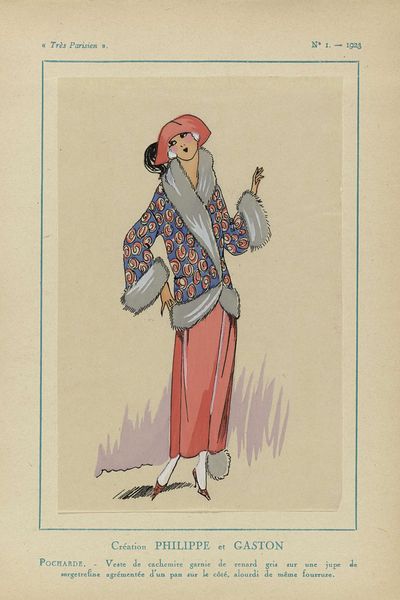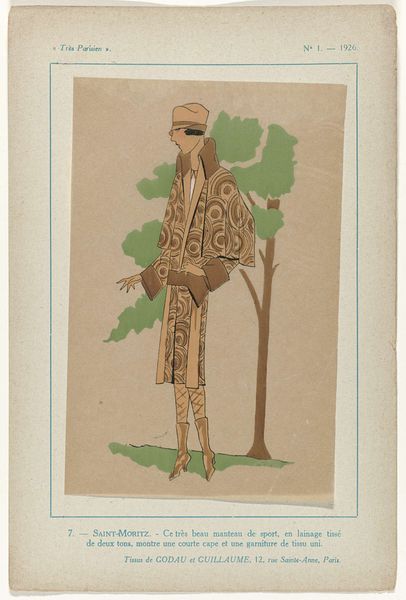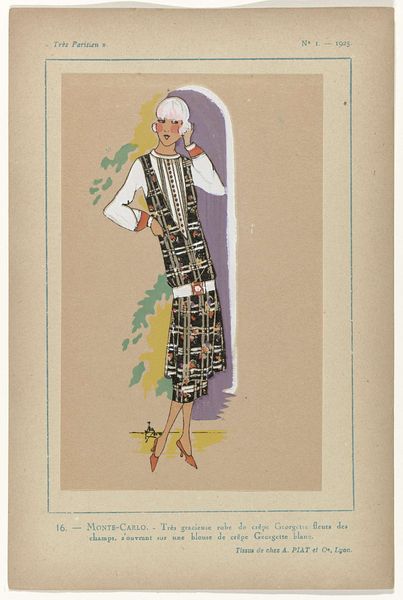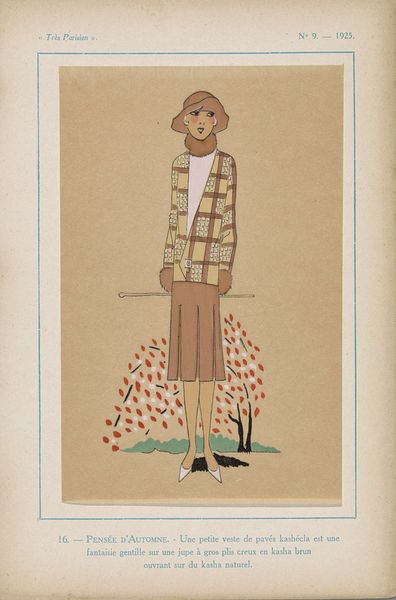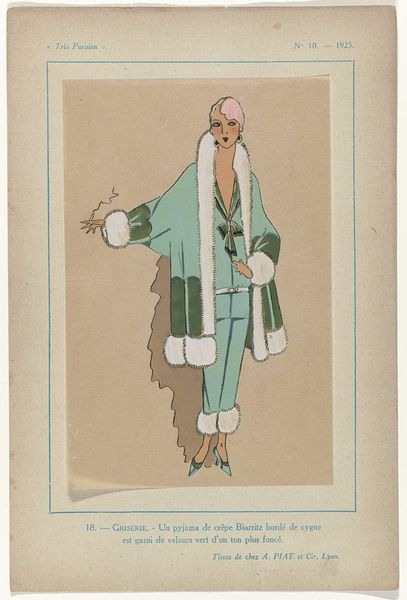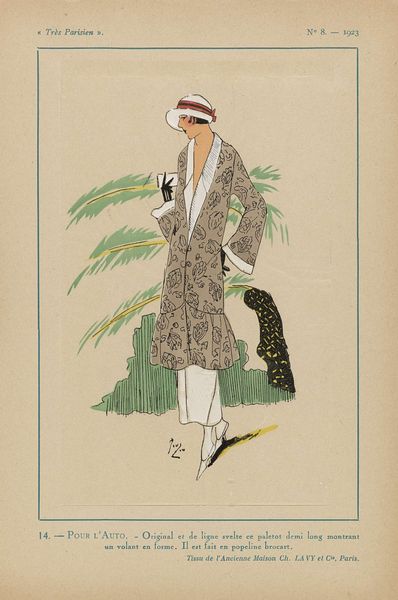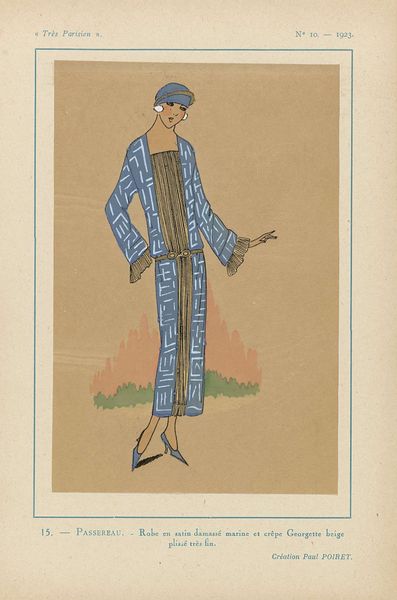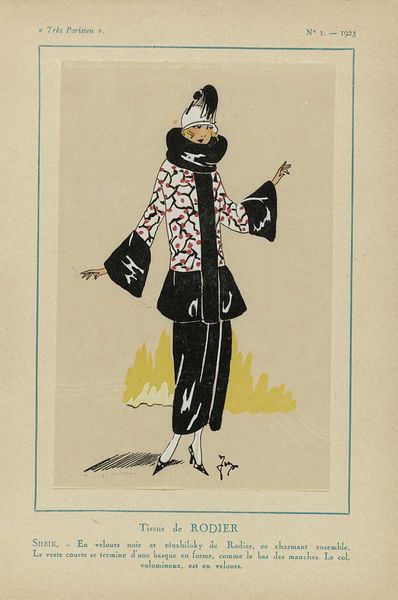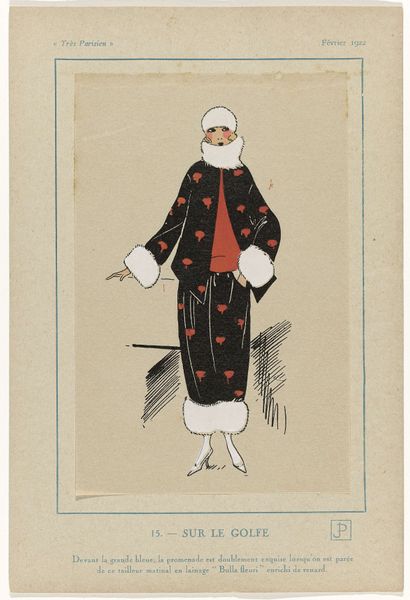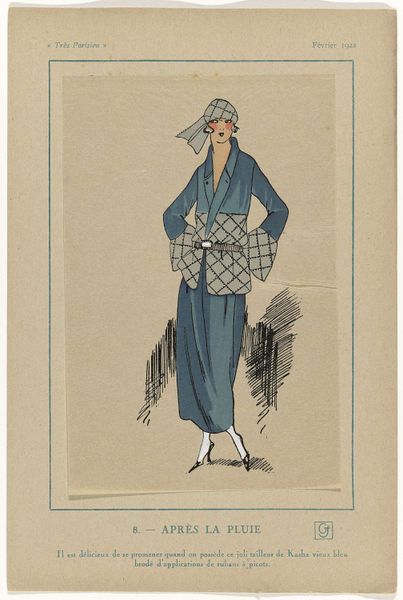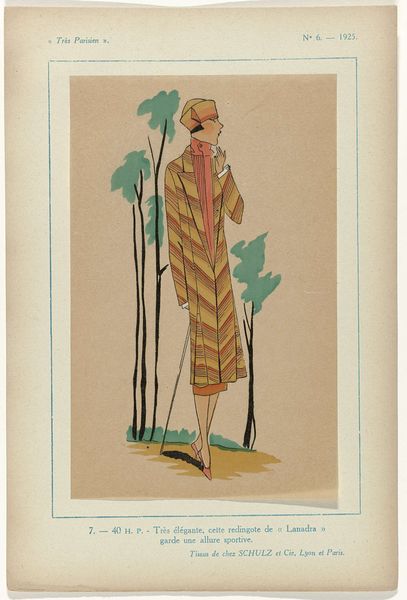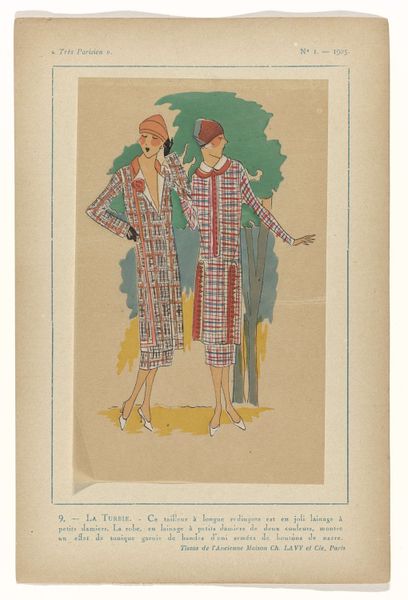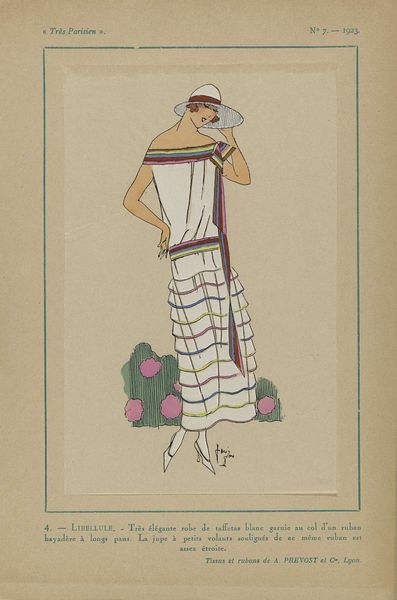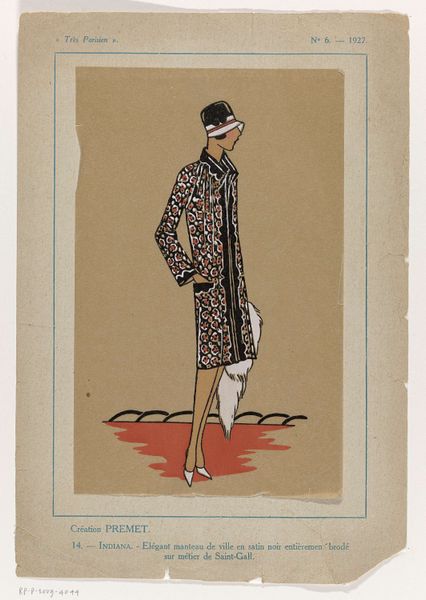
Très Parisien, 1925, No. 7, Pl. 12: Création Lucien LELONG - BIARRITZ 1925
0:00
0:00
gpjoumard
Rijksmuseum
painting, watercolor
#
portrait
#
art-deco
#
painting
#
watercolor
#
watercolour illustration
#
decorative-art
Dimensions: height 195 mm, width 120 mm, mm
Copyright: Rijks Museum: Open Domain
Editor: Here we have "Très Parisien, 1925, No. 7, Pl. 12: Création Lucien LELONG - BIARRITZ," a watercolor fashion illustration by G-P. Joumard, currently residing in the Rijksmuseum. The figure's poised elegance really stands out, almost like a mannequin. What draws your attention most when you look at it? Curator: Immediately, the rendering of materials grabs my attention. The textures—kasha sable, the imagined “tissu fantaisie” of the blouse—are communicated through delicate watercolour washes and intricate line work. Notice how the image elevates what are, essentially, manufactured goods, and presents them as art. Editor: That’s a fascinating perspective. So, you're suggesting it's not just a fashion plate, but also a commentary on the manufacturing processes? Curator: Precisely. It prompts us to consider the labor behind these clothes and the cultural significance attached to consuming these textiles. We must ask how does the mechanization of the textile industry affect the design of luxury clothing and fashion illustration? Consider too, the social context, Biarritz, a known location for luxury and how its geographical identity is communicated by the print. Editor: So it's not just about aesthetics; it's about the whole system that puts these clothes on the social stage. This changes how I understand "fashion illustration"—its production and cultural relevance as more than a decorative medium. Curator: Exactly. The boundaries between art and craft get blurry when we think about the human involvement in creating this work, and how the creation of these items of clothing for a leisure lifestyle may require intensive labour from others. Perhaps a closer examination of all artworks must begin from analysing all the process and participants required for their manufacture.
Comments
No comments
Be the first to comment and join the conversation on the ultimate creative platform.
